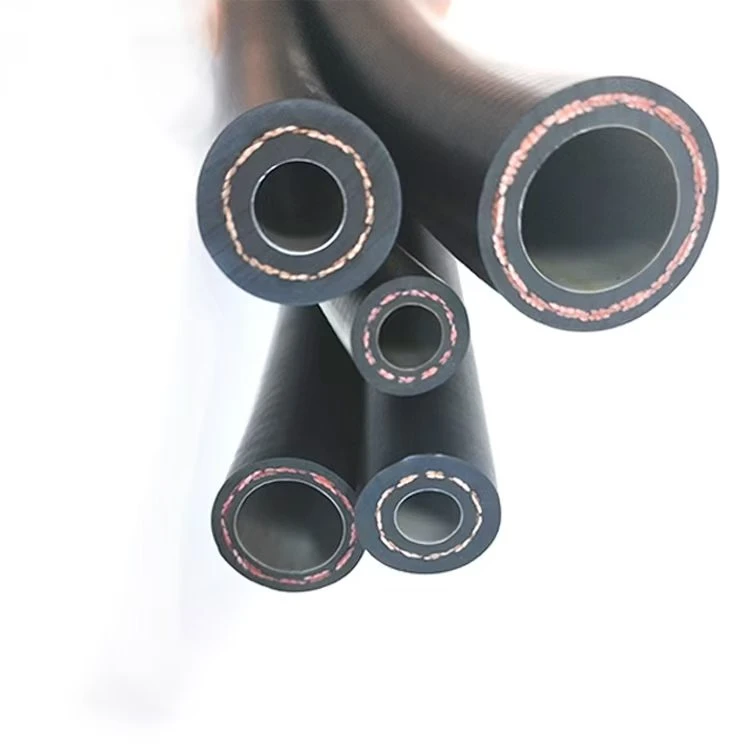Understanding Trailer Hydraulic Brake Line Systems and Their Maintenance Needs
Nov . 18, 2024 17:40 Back to list
Understanding Trailer Hydraulic Brake Line Systems and Their Maintenance Needs
Understanding Trailer Hydraulic Brake Lines Function, Importance, and Maintenance
When it comes to towing trailers, safety is paramount. One of the crucial components that ensure safety during towing is the hydraulic brake system, specifically the hydraulic brake lines. These lines are responsible for transmitting brake fluid from the master cylinder to the trailer's brake assemblies, allowing for effective braking. In this article, we will explore the function of trailer hydraulic brake lines, their importance, and the maintenance required to keep them in top condition.
Function of Hydraulic Brake Lines
Hydraulic brake lines are typically made of durable materials such as rubber or metal, designed to withstand high pressure and temperature fluctuations. The purpose of these brake lines is to transfer hydraulic pressure generated by the brake pedal action in the towing vehicle to the brakes on the trailer. When the driver presses the brake pedal, the master cylinder pushes brake fluid through these lines. The hydraulic pressure then activates the brakes on the trailer, allowing it to slow down or stop in a controlled manner.
The use of hydraulic brake lines allows for smoother and more efficient braking compared to other systems, such as mechanical brakes. Hydraulic systems amplify the force exerted by the driver’s foot, ensuring that even a moderate effort is translated into substantial braking power. This is particularly essential for trailers carrying heavy loads, where braking efficiency is critical to prevent accidents.
Importance of Hydraulic Brake Lines
1. Safety The primary function of hydraulic brake lines is to ensure safety while towing. An effective braking system can mean the difference between a safe stop and a potential accident. Trailers can weigh several tons, and having a reliable braking system is crucial for both the driver and other road users.
2. Performance Hydraulic brake systems provide more responsive braking compared to other methods. This improved performance is essential for maintaining control of the trailer during emergencies or when negotiating steep grades.
3. Regulatory Compliance In many regions, trailers over a certain weight must be equipped with electric or hydraulic brakes to comply with safety regulations. Having functional hydraulic brake lines is necessary not only for safety but also to adhere to local laws.
4. Load Management Hydraulic brakes allow for better load management. Proper braking ensures that the trailer doesn’t sway or jackknife while in motion, which can happen if the braking system is ineffective.
trailer hydraulic brake lines

Maintenance of Hydraulic Brake Lines
Maintaining hydraulic brake lines is essential for ensuring long-lasting performance and safety. Here are some tips for proper maintenance
1. Regular Inspections It’s important to frequently check the hydraulic brake lines for signs of wear, such as cracks, leaks, or corrosion. Any damage should be addressed immediately to prevent brake failure.
2. Brake Fluid Replacement The brake fluid in the system should be changed according to the manufacturer's recommendations. Old or contaminated brake fluid can lead to vapor lock, which reduces braking efficiency.
3. Bleeding the System Air can sometimes enter the hydraulic brake system, causing a spongy brake feel. Regularly bleeding the brakes ensures that any trapped air is removed, maintaining effective brake performance.
4. Check for Kinks or Obstructions Ensure that the brake lines are free from kinks, bends, or obstructions that could hinder fluid flow. Proper routing of brake lines is vital for functionality.
5. Professional Servicing While some maintenance tasks can be performed by the owner, it is advisable to have a professional inspect the hydraulic brake lines and system, especially before long trips or heavy towing.
Conclusion
In summary, trailer hydraulic brake lines are a critical component of the safe operation of towed trailers. They facilitate smooth and responsive braking, vital for controlling heavy loads and preventing accidents. Regular maintenance of these lines is essential to ensure their safety and effectiveness. By prioritizing the care of the hydraulic braking system, trailer owners can enhance not only their own safety but also that of everyone on the road. Always remember that proper maintenance is an investment in safety that should never be overlooked.
